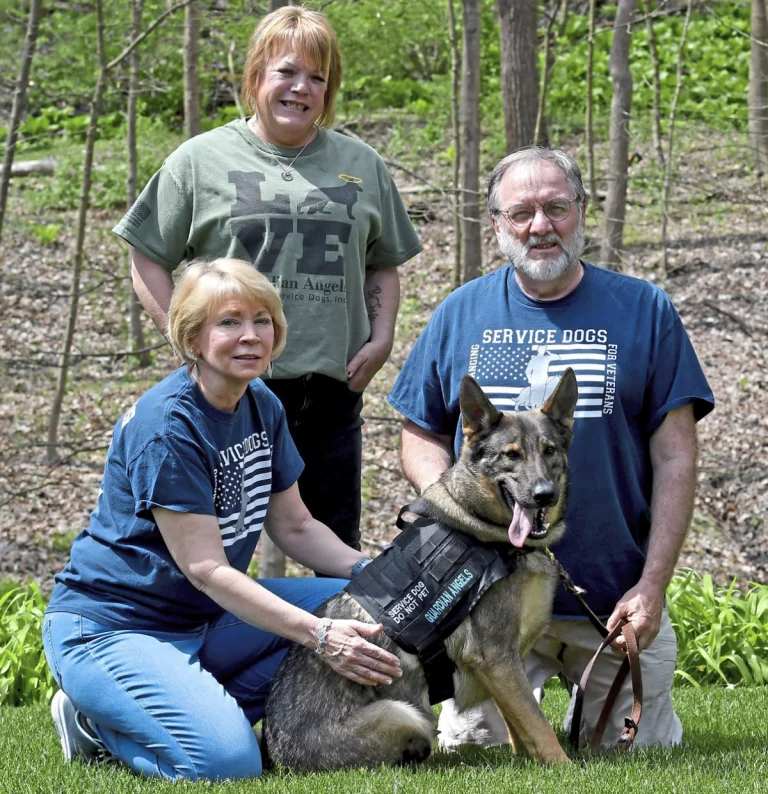
WILSON FUOCO
Pittsburgh Post-Gazette
JAN 17, 2020
LINDA 11:52 AM
“Emotional support animals” that bark, bite and make a mess on airplanes are creating access problems for trained Service Dogs that assist people who are blind or have mental and physical disabilities.
Eighty organizations have written a letter to U.S. Department of Transportation Secretary Elaine L. Chao asking that the federal agency adopt new rules that clearly define service animals and allow airlines to bar untrained emotional support animals from accompanying their owners on planes.
Service Dogs are trained for 12-24 months at a cost of $25,000-$50,000. Anyone can buy emotional support animal certification and an official-looking vest on the Internet for as little as $40.
So what’s wrong with having emotional support dogs on planes and in other public places? Vested animals have reportedly attacked people and urinated and defecated on airplanes.
As a result of this bad behavior, organizations that train real Service Dogs say their animals are increasingly being denied access to restaurants, schools, hospitals, hotels and other public places.
The Aug. 9 letter to the DOT is signed by Leader Dogs for the Blind, Guide Dog Foundation, Patriot Paws Service Dogs, America’s VetDogs, Canine Companions for Independence, Susquehanna Service Dogs and Paws With A Cause.
Other signers include the American Kennel Club, American Veterinary Medical Association, Air Line Pilots Association, Association of Flight Attendants and Global Business Travel Association.
“In 2018, over a million passengers on U.S. airlines traveled with ESAs in the cabin,” the letter says. “As a result, both airports and airlines have seen a sharp increase in incidents … from mauling and biting to urinating and defecating.”
Ms. Chao has not responded to the letter that was sent in August. New DOT guidelines were expected to be announced in December, but that hasn’t happened yet.
Most people view their pets as emotional support animals, but most pets are not trained to go out in public, said Sheila H. Goffe, vice president of government relations for the American Kennel Club.
Giving untrained animals access to planes and other public places is “not fair to the public, and it’s not fair to the untrained dogs,” who are stressed by the situations they are put into, Ms. Goffe said in a telephone interview. “People are fraudulently misrepresenting their pets.”
Service Dogs, on the other hand, “are magnificent. We are so proud of what they do,” Ms. Goffe said. “We want to protect those dogs and the people that need Service Dogs … to live a somewhat normal life.”
Ms. Goffe is also chairman of the American Service Dog Access Coalition, a nonprofit organization that is working to establish a voluntary credentialing system and registry for Service Dogs
Patriot Paws Service Dogs of Rockwall, Texas, is one of several organizations that place Service Dogs with Military Veterans. Many have invisible wounds, including traumatic brain injury and post-traumatic stress disorder.
Lori Stevens, Patriot Paws’ founder and director, said the 14-year-old nonprofit places 10-15 dogs with Veterans each year and that 100 more Veterans are on the waiting list.
She said an untrained emotional support dog attacked a Labrador retriever working with a Veteran in an airport. Afterward, the Service Dog became fearful around other dogs and could no longer work with the Veteran, she said.
Ms. Stevens said some unscrupulous people are taking advantage of the need and demand for real Service Dogs.
“Five years ago, a Veteran came to me with a 10-week-old Labrador retriever puppy. He paid $10,000 because he was told it was a Service Dog,” she said.
“Who does that to a Veteran?”
Linda Wilson Fuoco: lfuoco@post-gazette.com or 412-263-3064 or lfuoco@post-gazette.com or at PG Pets on Facebook.